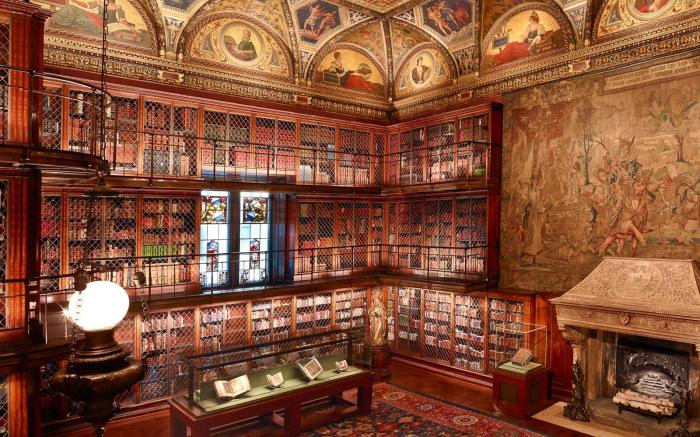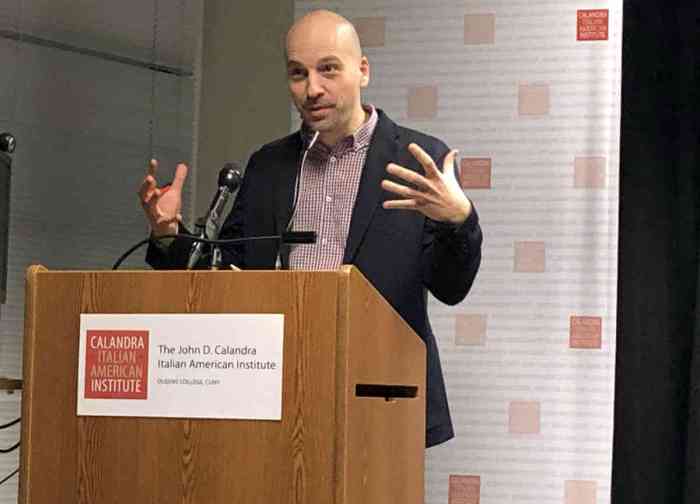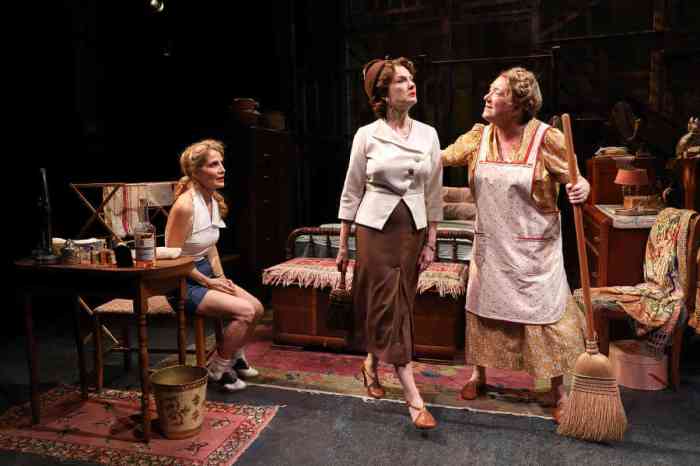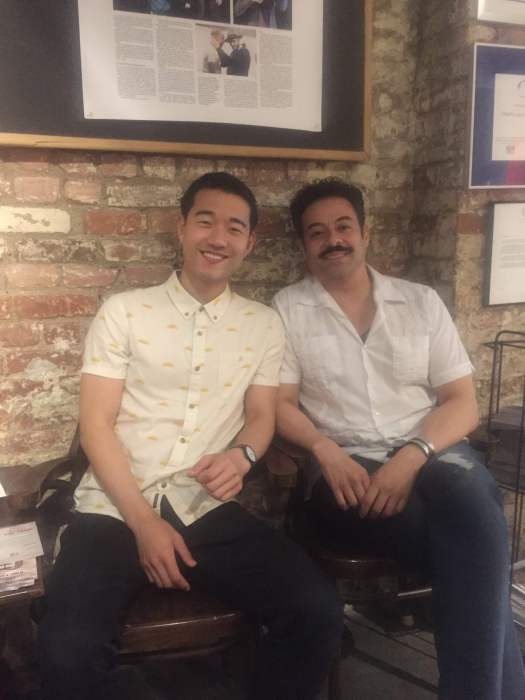BY DAVID NOH | God knows how many books have been written about Tennessee Williams, most of them not very good. However, James Grissom’s “Follies of God: Tennessee Williams and the Women of the Fog” honors the playwright beautifully. A great work, it is undoubtedly my favorite Williams tome yet.
The book has yet to be reviewed in the New York Times, an irksome, nay infuriating fact to me. Yes, John Lahr’s quite good biography was also recently published, but surely — given Williams’ widely acknowledged status as America’s greatest playwright — more than one volume deserves to be considered, especially one as good as this.
It takes a humane artist to capture the quality of another, and Grissom is surely that. I arranged a meeting with him for New York’s oldest gay bar, Julius’, which he’d never been to. When he arrived, I was chatting with one of the bar’s wonderful regulars, a genial lush whose knowledge of film and theater never ceases to astound me. With curiosity and true generosity, Grissom was as interested in my friend as in talking about himself.
James Grissom’s collected portraits of the playwright’s favorites is a spellbinder
Like so many of us, Grissom originally wanted to be an actor. He enrolled at Juilliard, “where I immediately bonded with my teacher, Marian Seldes, and I realized that I didn’t love it enough, seeing all these committed people. Marian said, ‘You don’t have the right attitude. You have the talent, but that’s generally not enough. There’s a degree of delusion that you need that I don’t think you have about acting.’
“She had read everything I had written because I showed it all to her — short stories, profiles, impressions of class and places. She liked it and said, ‘You have an ability to get people to help you, which you did to me, so why don’t you write to a writer who means a lot to you?’ I did, and that was Tennessee.
“Six months later in 1982, I was in my parents’ house in Baton Rouge and my mother came into the bedroom, saying, ‘Someone claiming to be Tennessee Williams is on the phone.’ I answered it and he said, ‘Perhaps you can be of some help to me. Let’s have lunch. I’m at the Royal Orleans Hotel [in New Orleans]. I said, ‘You know, I’m 80 miles away.’ ‘So you better hurry.’
“I drove there, and we met in Jackson Square. There he was in his horrible raccoon coat and we went to the Court of the Two Sisters restaurant, and we started talking.”
Williams had a special assignment for Grissom: for him to visit a variety of people — mostly actresses, but a few actors as well — with whom the playwright had worked or deeply admired, give them Williams’ personal impressions of them, and ask them what they in turn thought of him and if they believed he still mattered.
“We had been going on five hours and he said, ‘Let’s go to Louis’ place,’ the St. Louis Cathedral. He bought me a rosary and I honestly thought we were going to be asked to leave because he kept ticking off the rosary beads like the people he was interested in, saying loudly, ‘Get her off! I don’t want her on it. We’ll take Faye Dunaway, and put Maria Tucci there instead.’ It was hard for me to write all this down while I was kneeling.”
The exercise was all about Williams seeking affirmation.
“I said, ‘Okay, you want me to take what you’re saying about, say, Julie Harris, knock on her door, and say, ‘Tennessee said this.’ ‘Yes.’ ‘And then what?’ ‘Then you tell me what she said.’ ‘And then what?’ ‘Well, then I’ll feel better about myself and face the pale judgment [what Williams called the blank page]. You are the canary in the coal mine of my need.’”
Williams died five months later, but by then Grissom had become quite close to him.
“I had a vast knowledge of movies and plays, but there were things I never saw growing up in a cultural ditch. If it wasn’t on the late show, I wouldn’t have seen a particular movie he’d mention, but he’d say, ‘I’ll do it for you!’ And he would do a 60 to 75-second version of ‘Gaslight,’ really condense the whole movie — and plays, too. He’d say, ‘I’m sorry, but there is no reason on earth to read or see “Peer Gynt.” I can’t think of one.’ I had youth, he had cocaine.”
Requiring that he move to New York, Williams’ assignment initially was daunting for Grissom. After the playwright’s death, however, he decided to make good on his promise and embarked on the decades-long project that became “Follies of God.”
“When I moved to New York in 1989, Marian Seldes asked me to meet her, and she had a huge bag which she dumped on the table. It was all the letters I had written her with the interviews I’d gotten, which she’d been reading in her classes, and she said, ‘This is a book — you have to do it.’ She got on the phone and called Alec Guinness, Irene Worth, John Gielgud, and Edward Albee. The interviews started building up at a clip.
“Marian said once, not cruelly, ‘This could never have happened if he was alive, because you would have gotten all caught up in taking care of him. You would have been with him when he was drunk or stoned and it would have been messy to show up with him at the home of Julie Harris or Jessica Tandy.’ It’s not in the book, because it would be too much of a downer, but, with the exception of Maureen Stapleton, they were all ashamed that they had been actively avoiding him in his later years because of how he lived, drinking, etc. It was all, ‘Well, what happened? Where did everybody go?’ You’d hear him utter those words.”
“I fell in love with a lot of the women. Jessica Tandy, her vulnerability. Zoë Caldwell was astonished, as was Tandy Cronyn, who said, ‘I can’t believe you got all this out of my mother.’ Maureen Stapleton was an angel, a dark angel. Kim Stanley was great, too, smart and funny on the phone: ‘Honey, come and see me.’ When I went to LA and saw her, she was really broken down in bad health and I was looking at the effects of that. That was in 1992, and I never would have thought she could have lived for another nine years.”
The interviews are indeed amazing — honest and lyrical.
“It may be completely gone now, but I think there was an innocence about me,” Grissom said, explaining how he attained such intimacy with so many stars. “I really wanted to do this for this man, and people let their guard down. And there was the aforementioned fact of their being ashamed.”
Asked who the toughest interviews were, Grissom immediately answered, “Lauren Bacall and Faye Dunaway. Lauren was always so nice to me, but in [her apartment in] the Dakota, she said, ‘I don’t like journalists.’ I said, ‘I’m not a journalist.’ ‘You’re writing a book.’ ‘That’s not a journalist.’ Bad sitcom dialogue, until I finally said, ‘Then why am I here?’ Later, Phyllis Newman said, ‘That’s how you deal with her. She likes to test people.’
“She only saw me because Vicky Wilson, my editor, had edited her book. So disdainful, I had to say, ‘I’ve asked these questions of 20 people and they don’t think they’re stupid, like do you ever wonder if your work matters?’ And then I would be out with Marian or Frances Sternhagen at a play, and she’d be ‘Oh, hello darling!’ — mwah, mwah — ‘How’s your book coming? He’s very talented, you know! How come you never came back to finish the interview?’
“Faye I met when I worked the Carlyle front desk, a pimp for many of the gay people upstairs, checking in people, and we had a ‘Do Not Take’ list which Phil Spector and also Faye were on. She had one gay employee who was in her clutches. He would never give her a room but would do things like tape the Tony Awards for her because she said, ‘It’s very important to me. I’m coming back to the stage.’… Or she’d say, ‘I’m doing an interview. Can I have a room?’ ‘You can have two hours but don’t throw ashtrays or anything.’ She walked in on me and was sweet as could be because she needed something. I said, ‘While I have you here, I’m writing a book about Tennessee…’ She spoke to me for a while and all the other guys were shocked, they’d never seen her so nice.
“She still had her apartment on 78th street and said, ‘You can come see me.’ She was screaming when I got there, she was horrible. Ohmigod, you are in a ‘Mommie Dearest’ outtake! Everything was negative. I’d say, ‘I’m asking the questions Tennessee wanted to ask.’ ‘Well, they’re negative!’ She wasn’t freakish looking then, in 1998, but each year, more and more. What do they see when they look in the mirror?”
Elizabeth Taylor in 1986.NEAL PRESTON/ | JAMESGRISSOM.BLOGSPOT.COM
Elizabeth Taylor was definitely fun for Grissom, though not that helpful for the task at hand.
“She didn’t stay on the subject of Tennessee, so I’m putting that in my next book about Marlon Brando, about stardom shaping one’s life. She asked me to meet her at the Carlyle. They all remembered me when I went to see her — I was so tacky, carrying a can of Tab. This shriveled little Rutanya Alda woman opens the door and she was ready for me, on the couch.
“And she broke her own pose, and shrieked, ‘Tab?! Ohmigod, we’re gonna be best friends! I have Tab! Get him a Tab!’ She was stroking her little white Maltese dog in her lap and said, ‘Can you do me a favor? Sugar’s a little nervous. Can you take care of it?’
“I said, ‘You mean the dog, right?,’ and she went, ‘Aaack!’ She was great — tacky and loud Liz — and how scared do you think I was, walking Liz Taylor’s dog, with all the passersby on Madison? ‘Cute dog!’ ‘Get away!’ ‘What kind of dog?’ ‘Shitzu!’ I should have saved its shit and taken it to Christie’s!
“Her eyes were not purple, more of a lavender. She just wanted to be comfortable and she kicked her shoes off, nearly hitting the Rutanya Alda woman. I was so devoted to beauty, I asked, ‘Can I use your bathroom? No, I don’t wanna go to the hall bathroom, I want to use yours. I want to see the products!’ She gave me a tour, ‘Now this I use, witch hazel. Oh, honey you’ll never have a pore!’”
Eva Le Gallienne. | JAMESGRISSOM.BLOGSPOT.COM
Grissom’s book is an addictive read, a must for all true theater lovers, as each legendary actress weaves her own individual Scheherazade spell, with Grissom an uncannily canny guide. Of all his interviews, my personal favorite is with the great, not remembered nearly enough Eva Le Gallienne, the pioneering actress and producer and fiercely out lesbian all her life, devoted to bringing classical repertory to the public with her own company. Tennessee had told Grissom, “She never bored me. Even when I expected the worst from her — judgments and self-aggrandizing attitudes and bitterness over spent gifts — but it never happened that way. She had a mind that was like a tough, tall broom that swept everything before it away, and what was left was a clean, bare floor, a screen, and you could then project onto it whatever you needed to re-think something, to begin again.”
Of Williams, Le Gallienne in turn said, “He had the talent. He had the gift. This was demonstrable; that could not be disproved. What he lacked — and what I believe he always lacked — was the foundation of discipline and respect that everyone needs to remain balanced and to function. When he was young and strong, he could fly on lots of dreams and little maintenance, but when I last saw him [about 1980] he was adrift, sad, diminished [though Williams said he had been distracted]. He was the distraction. Tennessee Williams was the only thing that could destroy Tennessee Williams. And he did.”
FOLLIES OF GOD: Tennessee Williams and the Women of the Fog | By James Grissom | Knopf | $30 | 416 pages





































